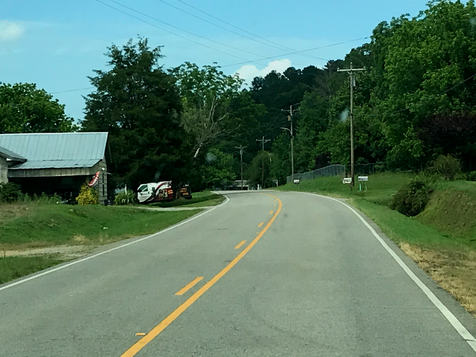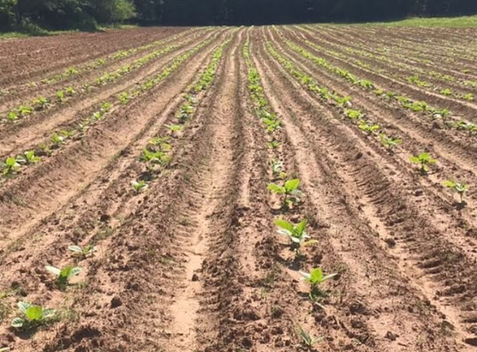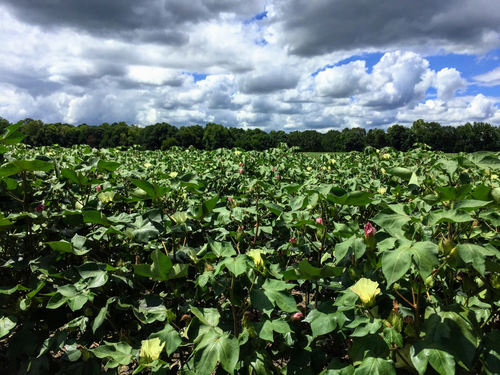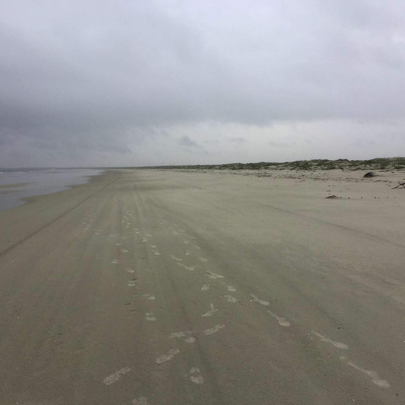 Sam Burnham, Curator In my previous article I mentioned the 1859 speech that Augustus Wright gave on the floor of the US House of Representatives. His idea, if taken only in summary, comes across as radical, leftist, perhaps even communist. But just as news headlines today don’t explain the details that are unearthed while actually reading the story, a summary of this speech cannot relay the brilliance of his idea. His speech opens with the observation that the federal government owned “a thousand million acres” (a billion acres) of land. Presently that number is around 640 million acres. That sounds like there has been a huge sell off but keep in mind entire states have been carved out of that 1859 estimate. The current total puts roughly 28% of all US land under the ownership of the federal government. Add land owned by state and local governments and that’s a sizable chunk of land that is in the public trust. He progresses into the idea he is presenting by laying out the importance of land ownership, not by the government and not by large planters but by the people at large. He advocated selling off, perhaps even ceding, arable tracts of public land to common people with the stipulation that they use the land to make their living. He described the power that self determination and independence can give to people. A man who owns his own land and can grow his own food has power. If he grows food for others he has income. This is the original American Dream. Wright further explains his position by pointing out the benefits for the government and the nation at large. He speaks of the economic benefits of having large swaths of the population become independent and prosperous. He explains that land ownership by those who want to work it benefits everyone. He describes his lack of sympathy for the rich who don’t need it “capital never fails to take care of itself.” He has similar feelings about willful vagrancy, “if a man will not work, neither shall he eat.” Then he explains that his sympathies lie with those who work and those who would work if they could. He asked his colleagues to consider the number of people who tilled the soil for others “obtaining a bare subsistence for themselves.”  This concept brings us back to the Oglethorpe model, to unleash the power of small landowners and empower them to defend themselves against exploitation. He further argued that this would build a nation of true citizens. No threat to the United States could overcome such a mass of citizenry who had a vested interest in this country. He argued that men would fight to defend their property and livelihood far more readily than they would for an abstract idea. Today the public holdings are fewer but still vast. Granted much of the land is in use as military bases, national parks, utilities, etc, but much of it just sits there. But there is also a new detail: corporate ownership. Big business has long been an issue but recently that threat has increased. If we only consider the Mississippi Delta, hedge funds own hundreds of thousands of acres. Large cotton plantations are owned by Wall Street investors who have likely never seen them. The people who live in the Delta, once described as “The Most Southern Place on Earth,” work the land to make rent payments to TIAA, Hancock, or UBS. There can be no self determination in such situations. This region has the largest per capita population of African Americans in the country. Much of this land was once owned by their ancestors and the way they lost it wasn’t pretty. So we see those two heads of the same monster- big government and big business - tightly grasping large landholdings that could otherwise be providing opportunity to a truly empowered working class - motivated, diverse, independent, hopeful.  Wright’s sentiment on this situation? “Any contrivance of men, by governments or corporations, whereby those who would labor are prevented from laboring, is, to that extent, a mischievous contrivance.” Regardless of the economic benefits of the current situation, it amounts only to damage in comparison to a model that unleashes the productivity of citizens achieving independence. Wright’s plan lays out an agricultural solution. In 1859, particularly in the South, agriculture was the reality. Atlanta was a dusty crossroads on a rail line. Birmingham, Orlando, and Miami didn’t exist. Commerce and industry were almost nonexistent across the South. In 2020 we can make adjustments to the plan. This is where we look at the percentages of the market controlled by Walmart, Wells Fargo, Home Depot, and other household names. The ability for local banks, local grocery stores, and local mercantile businesses to gain a foothold in the market is hindered by policies made by governments and choices made by customers. In this model, wages, benefit packages, leave policies, and other human resource practices are developed by people who never meet the employees they manage. Employees become a number rather than a person and humanity is lost in the shuffle. Small businesses have a better chance of preserving humanity and also offer independence to more people than huge corporations. More people running smaller businesses build a larger economic base than fewer people running large businesses. So we see, once again, an old idea that is wiser than current practices. Wright’s spin on Oglethorpe’s model is an option we can update easily and put into practice.
0 Comments
 Sam Burnham, Curator When James Oglethorpe sat down and laid out his plan for Georgia he designed a colony that would be tailor made for a particular sort of person. No, Georgia was not a penal colony, per se. The colonists were not criminals. Georgia was a second chance, a clean slate for debtors. The people who came to settle here were economically disadvantaged. They were easy prey for big banks and businesses. James Oglethorpe saw his colony as an opportunity to create a place where economically vulnerable people could find refuge, avoid exploitation, and establish their own independence. With this goal in mind he laid out some ground rules. Three things were explicitly forbidden: 1) large landholdings 2) slavery and 3) lawyers. By limiting large landholdings Oglethorpe hoped to encourage widespread landownership. The idea was that people who owned and worked their own land were more self-sufficient and less vulnerable to exploitation. Independent people are also less likely to need charity or other outside support. Fast forward to the present... Today entire communities are dependent on outside aid. We’ve come to know the term “food desert” to describe a location with little, if any, access to fresh food. Food deserts are far too common in Georgia. Ironically these deserts occur mostly in two places: 1) in modern developed cities and 2) in rural areas...on arable land. The reason these food deserts appear is because communities are failing. That’s not to say the people aren’t doing the right things. In fact, these communities are losing their anchoring institutions to larger cities or more affluent communities. A healthy community needs certain components. They don’t necessarily need a 500 bed hospital but they do need a doctor. They might not need a huge auto dealership but they do need a mechanic. Then there’s a pharmacy, a grocery store, a hardware store, a bank, a gas station. There needs to be repairmen: for homes, appliances, farm or lawn equipment. There should be a school. Ideally there will be a park, a library, a fire station (the vast majority of fire departments in America are volunteer.) We take these entities for granted in healthy communities. If you need food you go to the grocery store. If you’re sick you go to the doctor. If your stove breaks you call a repairman. Failing communities don’t have these options. This in the case if you’re in DeSoto, Georgia or in Atlanta’s West End. And while pundits on both sides of the aisle like to pit one of these communities against the other, they have far more in common than anyone seems to be willing to admit. They’re both crumbling down around themselves and no one in big government or big business could care the slightest bit less than they already do. If this pandemic, this quarantine, this abject failure of globalism, big government, and big business doesn’t jar us from our trance, nothing is going to. This is our chance to look back to Yamacraw Bluff in 1734 and realize that James Oglethorpe’s model for Georgia was right. That his plan has the answer for DeSoto and West End. We need to find ways to lead these communities into independence, into self-sufficiency, into health. In 1859 Georgia congressman Augustus Wright laid out a bombproof argument on the benefits of widespread property ownership. Thomas Jefferson preached his gospel of a nation of yeoman farmers. Today Wendell Berry’s wisdom is drowned out by the din of our mechanized disaster of a society, a din that has been suddenly stilled by the byproducts of our reliance on cheap Chinese goods, often made by Uyghur (or other minority) slaves. The largest owners of farmland in the Mississippi Delta are hedge funds. Farmers are effectively renting their land from stockbrokers. Looking at Oglethorpe's plan compared to the current model, we can see his plan to prevent exploitation of people and providing a system of self-sufficiency contrasted against a system where exploitation is the rule. Neither major party has a plan to change this. One preaches the virtue of big business while the other pushes big government...two heads of the same ugly monster. This is our chance. We may only get one. If we come out of lock down and go right back to what we were doing and how we were doing it, we deserve whatever whirlwind we reap. But if we crawl out of our caves ready to build a better world, a better way of life, we can build something that no government program, no big business spreadsheet, no United Nations initiative ever could. We can build it with small businesses, small farms, small communities (even within huge cities) and we can have opportunities for a lot of people. We can do it with local food, local banks, local energy, local business. We can set standards for the people we do business with. We can expect them to care about our communities. We can demand ethical practices. To do this the highest standards we set have to be for us. We can’t settle for less. Our founding fathers fought for independence with guns. It’s time to fight for independence again. But this time the fight has to be waged with our wallets, with our consciences, and with our expectations. I’m begging you. Come out of this ready to grow like a tree, not like a fire.  Sam Burnham, Curator It is easy to get down in times of isolation and fear. The loss of friends and loved ones can make matters worse. Traditions, routines, and the normal course of daily life have all been completely disrupted. People rely on social networks not just for personal preferences but because they need such safety nets to help navigate depression, addiction, despair. If you are finding yourself in despair, frustrated, depressed, or despondent, you might be by yourself right now, but you aren’t alone. Your situation is not even rare. It’s normal to feel the way you do. What you can’t do is quit. Don’t give up on life. Don’t give up on sobriety. Don’t give up on this world. This misery will end. We will make it through. It will be important moving forward that we think about the world we want to live in. Making people, relationships, and humanity a priority will build one sort of world. Merely rebuilding an economy based on stock markets, big businesses, cheap imports, and spreadsheets will build another sort of world. The way I opened this article should make us all think. Building an economy of people will help us build a better world. When a few weeks of quarantine can put large swaths of the population at risk of relapse or even suicide, we need to wake up. We have tremendous hope for the future. But we’re more likely to emerge sluggish than we are to come out in a sprint. People will be hurting, money will be tight, and local businesses will be struggling and in need of patronage. The best way to save this economy AND people is to build small, to build steady, to grow like a tree, not like a fire. We need to make wise decisions about who we do business with. Supporting the enterprise of our friends and neighbors builds our local economies. Building the local economy creates more opportunities and therefore more hope for people. That is the way to build more financial strength for our communities and therefore ourselves. We benefit financially by being thoughtful toward others. It’s a concept that leadership specialist Bob Buford called altruistic selfishness. By helping others we really help ourselves. Most importantly, people matter. That means you matter. Consider the value of someone around you today. Maintain a safe distance but make sure to care about someone today. And make sure to take care of yourself today. Just some food for thought from a socially distant undisclosed location in the Southern highlands. Y’all stay safe out there. |
Sam B.Historian, self-proclaimed gentleman, agrarian-at-heart, & curator extraordinaire Social MediaCategories
All
Archives
November 2022
|




 RSS Feed
RSS Feed
